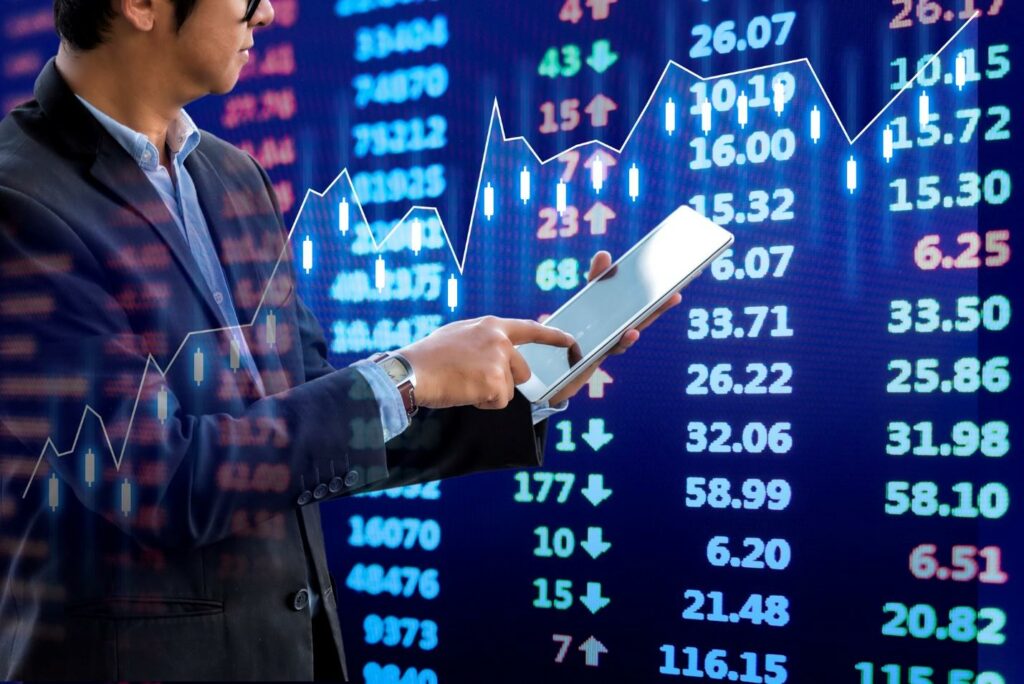The world has seen some hard times economically over the last few decades. First came the 2008 crash which led to Quantitative Easing, a form of money printing while subduing inflation, and then came COVID–19 and the subsequent lockdowns. This involved the shutting down of the world economy, a drastic measure which has inflicted plenty of damage.
The Australian dollar (AUD) has subsequently gone into decline. When currency goes into decline the impact on markets is often severe, although it can generate opportunities for seasoned and skilled investors.

Post Contents
The Economic Impact of China’s Zero Covid Policy
Much of the Australian economy is tied with China. In fact, it is the country’s biggest economic trading partner exporting a range of commodities including liquified natural gas, iron ore, various minerals, and coal. Over the years, this has been highly profitable for Australia but thanks to China’s unattainable Zero Covid policy, and the financial collapse of two of its biggest property developers, Evergrande and Country Garden, demand for Australian commodities has severely dropped.
This reduced demand has also caused a severe drop in commodity prices which impact tax revenues and investment further.
The impact of commodity price drops and other worldwide economic factors impacted other areas of investment such as forex trading. When China reopened in early January the Yuan started to drop in price compared to the U.S. dollar. It wasn’t until mid-February before the Yuan started to make up lost ground.
China’s Stunted Reopening
Investment and economic shocks ensued when it became clear that worldwide expectation of China to come back with a bang following the reopening of the country once the Zero Covid policy was stopped did not happen. Instead, the crippling of China’s economy has contributed to high youth unemployment, poor retail sales, and crucially, the financial difficulties of its property development firms highlighted above, have impacted the value of the Yuan and stock prices in Chinese firms have been tumbling.
This has further impacted the Australian dollar value. With Chinese people not having pre-Covid – 19 spending power has seen less travel and Chinese tourism to Australia. Again, negatively impacting the economy and the spending power of your average Australian.
Inflation Raises its Ugly Head
Like most of the world the sharp rise in inflation hit the Australian economy hard, causing the value of the Aussie dollar to weaken. Most national banks including the Reserve Bank of Australia have concluded the rising price of oil as the catalyst to inflate prices across the economy. This includes energy, food, mortgages, travel, and consumer goods.
From an industry standpoint, this has impacted on necessary supplies to keep a business going negatively. Not only are these supplies harder to get, but they cost a lot more, hitting the bottom line hard.
Also, less spending power of your average Australian puts increased pressures on businesses of nearly every type.
It is not just the cost of living that is causing the Aussie dollar to depreciate but the fears of global recession. Given what’s happened to China’s economy, and the subsequent stalling of their housebuilding projects, it seems those fears are well founded.
The U.S dollar performance has impacted the AUS dollar as well. Whereas America has seen inflation fall to 4%, the Australian inflation rate is still at 5.6%. This impacts business costs as outlined above.
It’s Not All Over for Australia
According to the IMF it is not all over for Australia and the markets. That said economic growth is predicted to fall to 1.25% in 2024 lower than 2023’s 1.8%. However, in the broader picture positive growth is positive, and will hopefully lead the country to bounce back.
Despite higher cost of living, the impact of lockdowns both at home and abroad, the country’s unemployment rate remains relatively low, and productive output high.
The State of the Australian Market
With the turmoil of the last few years and the impact on commodities and the AUS dollar, it is easy for investors and institutions to lose faith. That said, the markets are to some degree tied with world events and in turn inflation, once this starts to look a little better and more stable, it is fair to believe that the markets will shift from bearish to bullish.
This can, right now, create investment opportunities. It carries plenty of risk, especially as markets are very unpredictable, and should you be in the market for investing then it is critical that you study world events meticulously.
With this in mind, you may want to take advice from professionals before parting with your hard-earned cash.